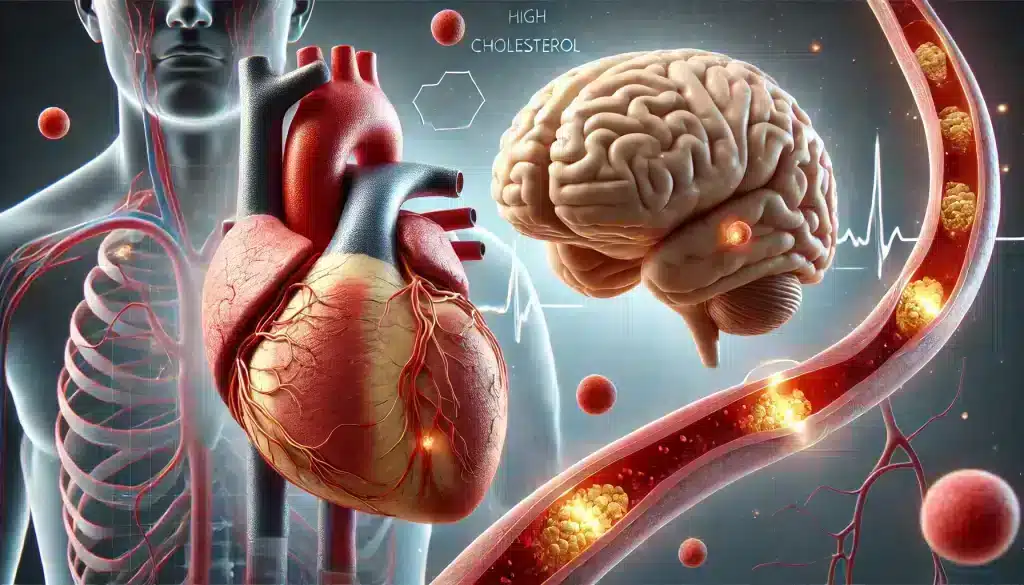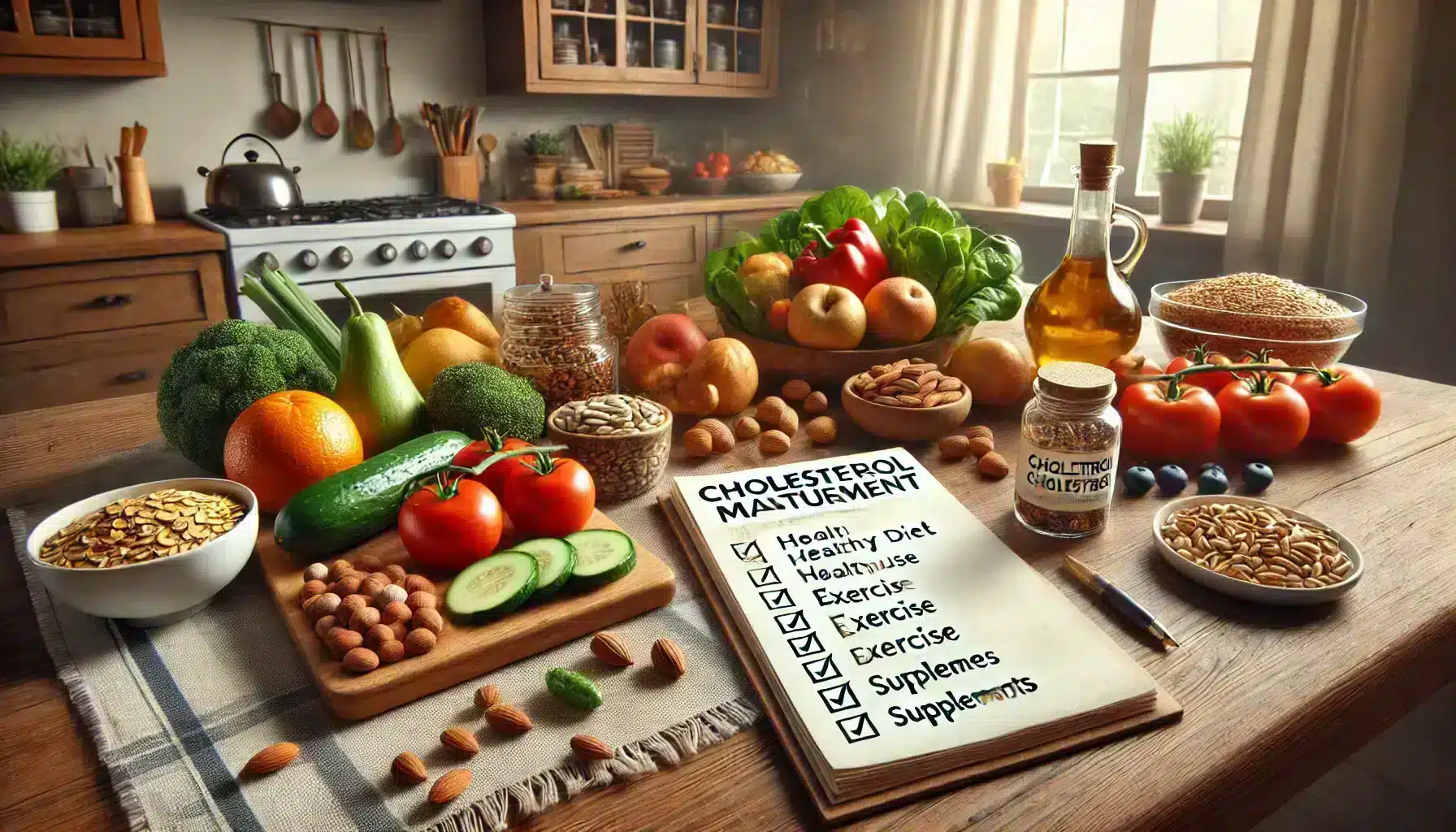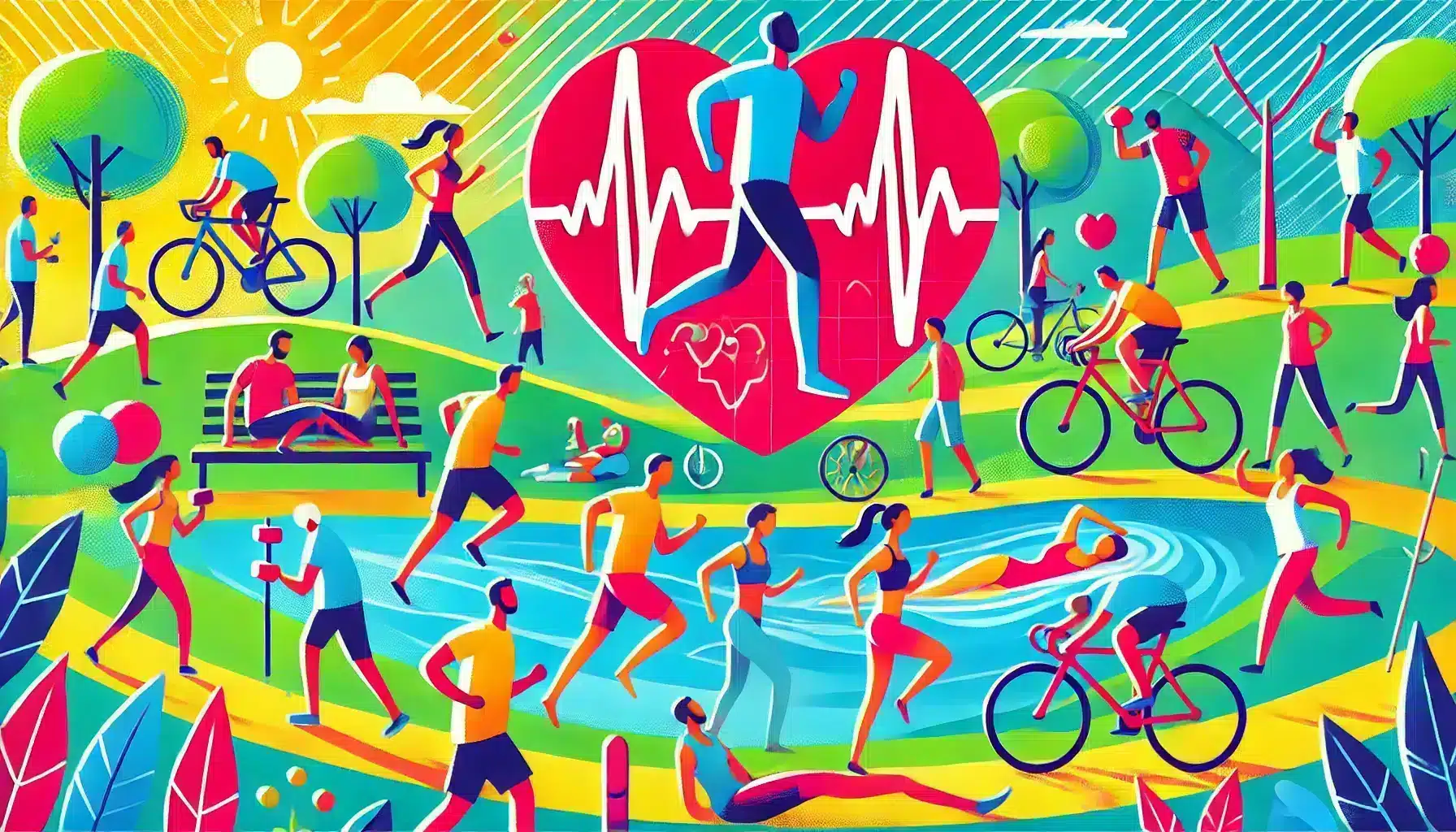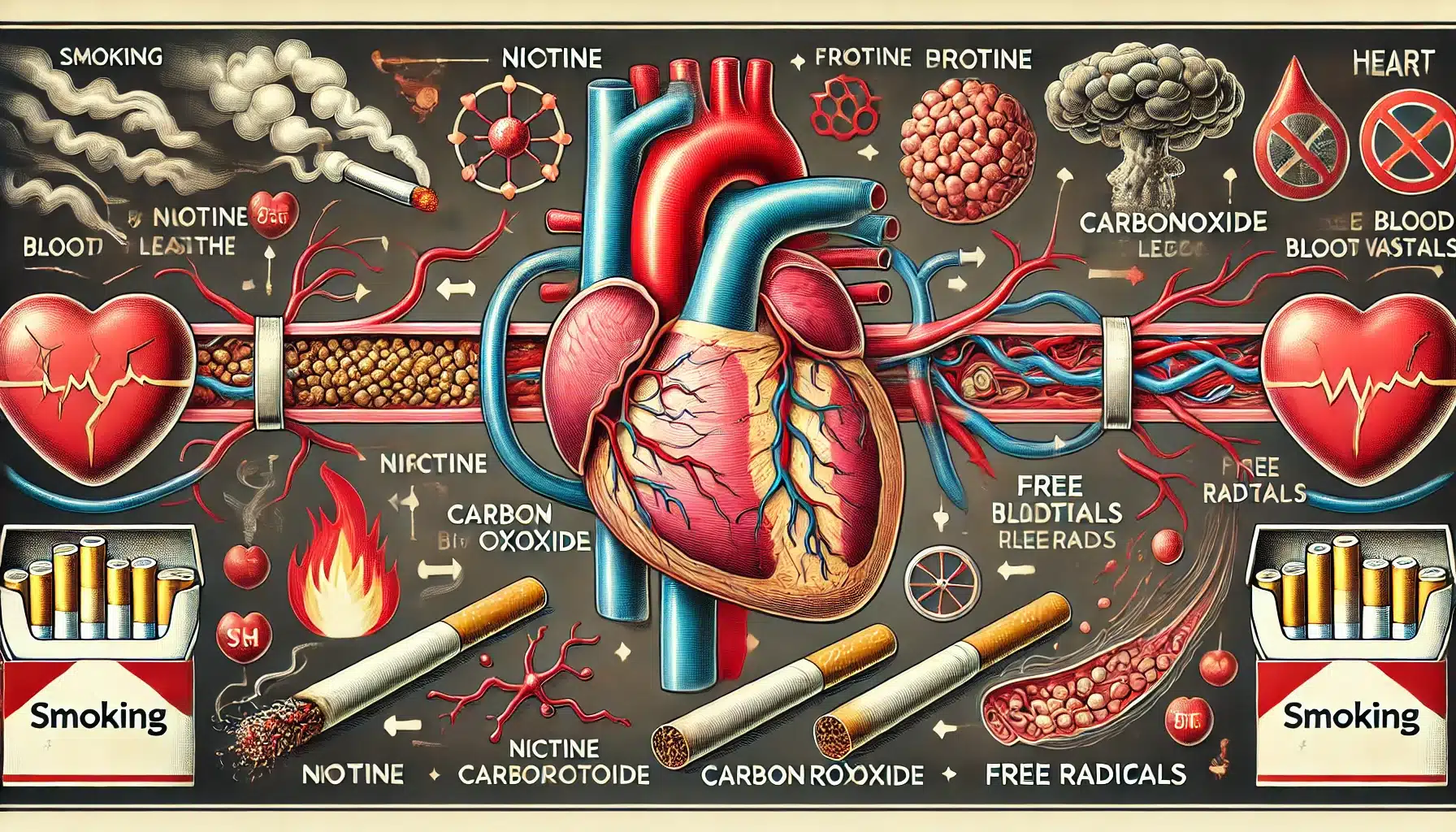Understanding High Cholesterol
Cholesterol is a waxy, fat-like substance that is found in every cell of the body. While it plays a vital role in building cells and producing certain hormones, having too much cholesterol in your blood can lead to health problems. There are two types of cholesterol: low-density lipoprotein (LDL), often referred to as “bad” cholesterol, and high-density lipoprotein (HDL), known as “good” cholesterol. High levels of LDL can lead to the buildup of plaques in your arteries, which can restrict blood flow and increase the risk of heart disease and stroke.
High cholesterol usually doesn’t cause any symptoms, which is why it’s often called a “silent” condition. It can only be detected through a blood test known as a lipid panel or lipid profile. Understanding the levels of LDL, HDL, and triglycerides in your blood can help you and your healthcare provider determine the best course of action for managing cholesterol levels naturally.
Causes of High Cholesterol

High cholesterol can be influenced by various factors, some of which are within your control, while others are not. Understanding these causes can help you make informed decisions about lifestyle changes that can naturally lower your cholesterol levels.
Unhealthy Diet
An unhealthy diet that is high in saturated fats, trans fats, and cholesterol can raise your LDL (bad) cholesterol levels. Saturated fats are commonly found in red meat, full-fat dairy products, and certain oils, while trans fats are present in many processed and fried foods. Consuming these foods regularly can significantly contribute to higher cholesterol levels. Conversely, diets rich in fruits, vegetables, whole grains, and healthy fats, such as those found in nuts and olive oil, can help lower cholesterol levels.
Lack of Physical Activity
Regular physical activity can help raise HDL (good) cholesterol while lowering LDL cholesterol and triglycerides. A sedentary lifestyle, on the other hand, can lead to weight gain and higher levels of LDL cholesterol. Physical activity helps your body move cholesterol from your arteries to your liver, where it is processed and removed from your body. Incorporating at least 30 minutes of moderate exercise most days of the week can make a significant difference in your cholesterol levels.
Genetics and Family History
Genetics play a significant role in your cholesterol levels. Familial hypercholesterolemia is a genetic condition that causes very high LDL cholesterol levels and increases the risk of heart disease at an early age. If high cholesterol runs in your family, you may be at higher risk, even if you follow a healthy lifestyle. Understanding your family history and discussing it with your healthcare provider can help in creating a personalized plan to manage your cholesterol levels.
The Risks of High Cholesterol

High cholesterol poses several risks to your health, primarily related to cardiovascular issues. When there is too much LDL cholesterol in the blood, it can build up in the walls of your arteries, leading to atherosclerosis—a condition where the arteries become narrowed and hardened due to plaque buildup. This can significantly impede blood flow, resulting in serious health complications.
Heart Disease
One of the most severe risks of high cholesterol is heart disease. Plaque buildup in the coronary arteries can reduce the flow of oxygen-rich blood to the heart muscle, which can cause chest pain (angina) and increase the risk of a heart attack. The blockage of arteries can be gradual, developing over many years without any symptoms until significant damage has occurred. Managing cholesterol levels is crucial in reducing the risk of heart disease and improving overall cardiovascular health.
Stroke
High cholesterol can also lead to stroke, a serious condition that occurs when the blood supply to part of the brain is interrupted or reduced, preventing brain tissue from getting oxygen and nutrients. This interruption can be caused by blocked arteries due to plaque buildup. Strokes can lead to severe complications, including paralysis, speech difficulties, and in some cases, death. By managing cholesterol levels, you can lower the risk of stroke and other related health issues.
Natural Ways to Manage High Cholesterol
Managing high cholesterol naturally involves making lifestyle changes that promote overall health and reduce the risk of heart disease. By focusing on dietary adjustments, regular physical activity, and other healthy habits, you can effectively lower your cholesterol levels without relying solely on medication.

Healthy Eating Habits
Adopting healthy eating habits is one of the most effective ways to manage high cholesterol. Focusing on a diet that is low in saturated and trans fats, and high in fruits, vegetables, whole grains, and healthy fats can help improve your cholesterol levels. Incorporate more plant-based foods and reduce the intake of processed foods, red meats, and full-fat dairy products.
Focus on Whole Foods
Whole foods, such as fruits, vegetables, whole grains, nuts, and seeds, are rich in nutrients and fiber, which can help lower cholesterol. Fiber, particularly soluble fiber found in oats, beans, and certain fruits, helps reduce the absorption of cholesterol into your bloodstream.
Reduce Saturated Fats
Saturated fats can raise your LDL cholesterol levels. By cutting back on foods like fatty cuts of meat, butter, and full-fat dairy products, you can significantly reduce your LDL cholesterol. Opt for lean meats, low-fat or fat-free dairy products, and healthier cooking oils like olive oil.
Increase Fiber Intake
Fiber, especially soluble fiber, helps lower LDL cholesterol by binding to cholesterol particles in your digestive system and removing them from your body before they enter your bloodstream. Foods high in soluble fiber include oatmeal, beans, apples, pears, and Brussels sprouts.
Regular Physical Activity
Engaging in regular physical activity is another effective way to manage high cholesterol naturally. Exercise helps improve your body’s cholesterol balance by raising HDL (good) cholesterol and lowering LDL (bad) cholesterol. Aim for at least 150 minutes of moderate aerobic exercise or 75 minutes of vigorous exercise each week.
Types of Exercises
Incorporate a mix of aerobic exercises, such as walking, jogging, cycling, or swimming, and strength training exercises, like weightlifting or resistance bands. Aerobic exercises help improve cardiovascular health, while strength training helps build muscle and reduce fat, contributing to better cholesterol levels.
Exercise Frequency
Consistency is key when it comes to exercise. Try to engage in some form of physical activity most days of the week. Even small amounts of exercise can make a difference; find activities you enjoy to make it easier to stick to a routine.
Maintaining a Healthy Weight
Being overweight or obese can increase your LDL cholesterol levels and lower your HDL cholesterol. Losing even a small amount of weight can have a positive impact on your cholesterol levels. Focus on gradual, sustainable weight loss through a combination of healthy eating and regular physical activity.
Managing Stress
Chronic stress can negatively impact your cholesterol levels by increasing the release of stress hormones that can raise your LDL cholesterol and lower your HDL cholesterol. Techniques such as meditation, deep breathing exercises, yoga, and mindfulness can help reduce stress levels and improve overall heart health.
Avoid Smoking and Alcohol
Smoking lowers HDL (good) cholesterol and damages the walls of your blood vessels, making them more prone to cholesterol buildup. Quitting smoking can improve your HDL levels and overall heart health. Additionally, excessive alcohol consumption can raise your total cholesterol and triglyceride levels. Limiting alcohol intake to moderate levels—one drink per day for women and up to two drinks per day for men—can help manage cholesterol levels more effectively.
Supplements and Herbal Remedies

In addition to lifestyle changes, certain supplements and herbal remedies can help manage high cholesterol levels. These natural options can complement your efforts to lower LDL cholesterol and improve overall heart health. However, it’s essential to consult with a healthcare provider before starting any new supplements, especially if you are on medication or have underlying health conditions.
Omega-3 Fatty Acids
Omega-3 fatty acids, commonly found in fish oil, flaxseeds, and walnuts, are known for their heart-healthy benefits. These fats help reduce triglycerides, lower blood pressure slightly, and may also reduce the risk of developing heart disease. Omega-3 supplements can be a convenient way to ensure you are getting enough of these beneficial fats, especially if your diet lacks sufficient fish or plant-based omega-3 sources.
Plant Sterols and Stanols
Plant sterols and stanols are naturally occurring substances found in small amounts in many fruits, vegetables, nuts, seeds, cereals, and legumes. These compounds can help lower LDL cholesterol by blocking the absorption of cholesterol in the intestines. Consuming foods fortified with sterols and stanols or taking them as supplements can effectively reduce cholesterol levels, especially when combined with a healthy diet.
Garlic and Other Herbal Supplements
Garlic has been used for centuries for its medicinal properties, including its ability to lower cholesterol levels. Some studies suggest that garlic can slightly reduce total and LDL cholesterol levels, although the effects are often modest. Other herbal supplements, such as red yeast rice, green tea extract, and artichoke leaf extract, have also shown potential in lowering cholesterol, but more research is needed to confirm their efficacy and safety.
Monitoring Your Progress
Effectively managing high cholesterol requires ongoing monitoring to assess the impact of your lifestyle changes and any supplements or medications you may be using. Regular check-ups with your healthcare provider are crucial to ensure your cholesterol levels are within a healthy range and to make adjustments to your management plan as needed.
A lipid panel is the primary blood test used to measure your cholesterol levels. It provides detailed information about your total cholesterol, LDL (bad) cholesterol, HDL (good) cholesterol, and triglycerides. Your healthcare provider will typically recommend having your cholesterol levels checked every 4 to 6 years if you are at average risk. However, if you have a history of high cholesterol, heart disease, or other risk factors, more frequent testing may be necessary.
In addition to regular blood tests, keeping track of your diet, exercise, and other lifestyle changes can help you stay motivated and committed to managing your cholesterol naturally. Consider keeping a journal or using a digital app to log your meals, exercise routines, and any supplements you are taking. This record can help you and your healthcare provider identify patterns and make more informed decisions about your cholesterol management plan.
Frequently Asked Questions (FAQ)
How long does it take to lower cholesterol naturally?
The time it takes to lower cholesterol naturally can vary depending on the individual, the extent of lifestyle changes, and the baseline cholesterol levels. Generally, significant changes can be observed within 3 to 6 months of implementing consistent dietary changes, regular exercise, and other healthy habits. Regular monitoring will help track progress and make necessary adjustments.
Can lifestyle changes replace cholesterol medication?
In some cases, lifestyle changes can be sufficient to manage cholesterol levels without the need for medication, especially if the changes are implemented early and the cholesterol levels are not extremely high. However, for individuals with very high cholesterol, existing heart disease, or other significant risk factors, medication may still be necessary. It’s important to work with your healthcare provider to determine the best approach for your specific situation.
What foods should I avoid if I have high cholesterol?
To manage high cholesterol, it is best to avoid foods high in saturated fats, trans fats, and dietary cholesterol. This includes fatty cuts of red meat, full-fat dairy products, processed and fried foods, baked goods made with hydrogenated oils, and certain shellfish like shrimp. Instead, focus on foods that promote heart health, such as fruits, vegetables, whole grains, lean proteins, and healthy fats.



